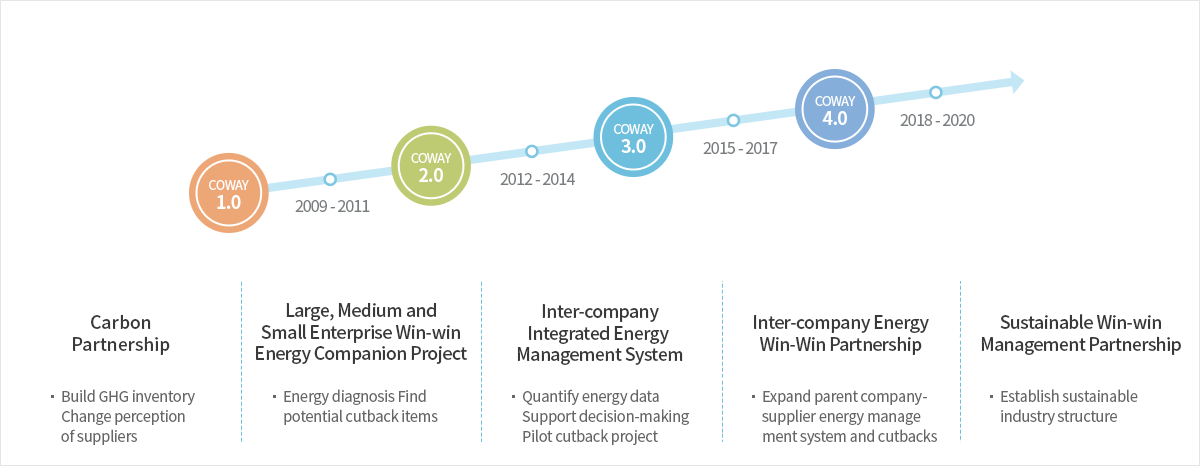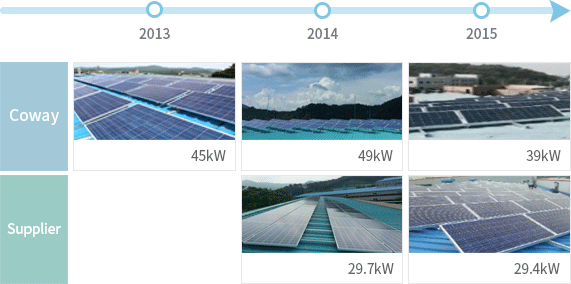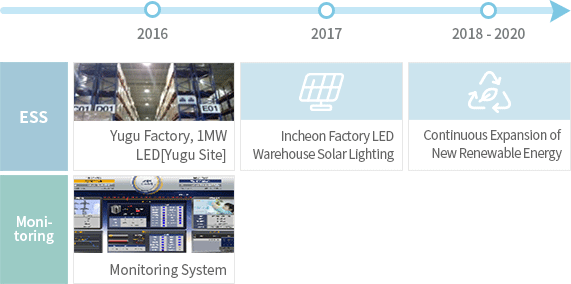In 2016, Coway launched the Smart Factory to reduce greenhouse gas (GHG) emissions from work sites and increase corporate management efficiency. Facilities for solar power, which is a new renewable energy, were installed and operated in the Yugu Factory (49.5KWh), Incheon Factory (39KWh), and Pocheon Factory (45KWh), through which 174,709KW of electrical power was generated and self-consumed in 2016. This is equivalent to a reduction of 81 tons of GHG. Furthermore, the adoption of the energy storage system (ESS) in the Yugu Factory was completed, reducing approximately KRW 70 million in energy costs. Through ESS, KRW 140 million in energy costs is expected to be reduced in 2017. LED lighting was also installed in the Yugu Factory and warehouses, improving the working environment (illumination intensity) of work areas, reducing over KRW 100 million in energy costs and creating an effect of roughly 300 tons of GHG reduction.
Although Coway is not subject to greenhouse gas (GHG) and energy target management in Korea, we have established mid and long-term GHG reduction goals and implemented relevant activities in an effort to actively take part in responding to the challenges of climate change. Every year, we undergo voluntary third-party inspection and publicly disclose the results. Our goal is to reduce GHG intensity, compared to 2010, by 50% by 2020. In 2016, Coway’s net GHG emissions decreased by 1.70% compared to 2015 (provided that it increased by approximately 0.82% prior to the physical division of Coway EnTech), and GHG emissions intensity decreased by 3.62%.
| Type | Unit | 2014 | 2015 | 2016 |
|---|---|---|---|---|
| Direct Emissions (Scope 1) | tCO2e | 196 | 391 | 401 |
| Indirect Emissions (Scope 2) | 5,385 | 5,369 | 5,261 | |
| Net Emissions (Scope 1 + 2) | 5,581 | 5,760 | 5,662 | |
| Net Emissions Intensity | Net emissions (tCO2e)/ Sales (KRW 100 million) | 0.277 | 0.266 | 0.257 |
Coway strives to strengthen the capabilities of its suppliers to respond to climate change. Through our continuous support of carbon partnership suppliers, their energy competitiveness is enhanced by suppressing energy consumption against sales increase as much as possible. Through these efforts, Coway seeks to prevent supplier risks caused by climate change.


